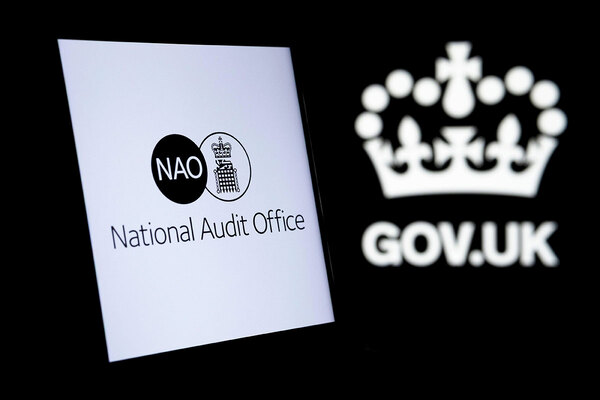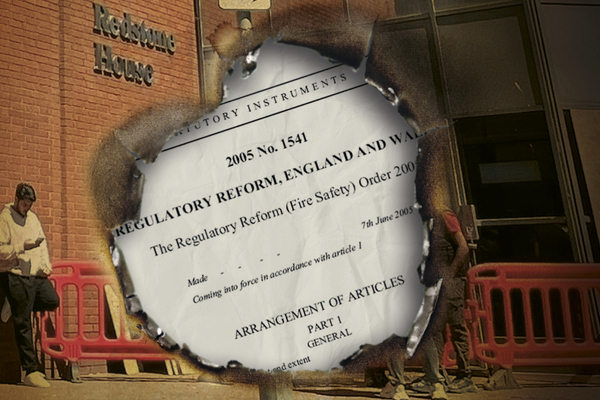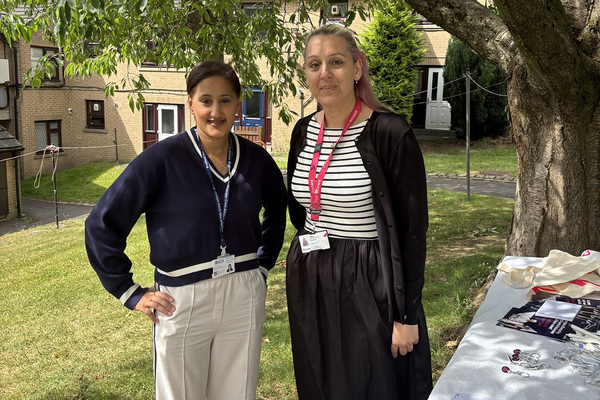How three councils are responding to rising abuse against housing staff
Assaults against housing staff have risen year-on-year since 2020, and housing providers are now taking active steps to ensure the safety of their workforce. Anna Highfield speaks to three English councils to find out how they are handling the rising level of abuse

Key learnings
- Trauma-based and de-escalation training can help housing officers to avoid conflict situations and manage them effectively when they happen
- Collating data to track trends in assaults against staff can ensure new safety measures are targeted effectively
- Upgrading lone worker devices to include inbuilt tracking and recording software, which can be engaged in conflict situations, can give managers an oversight of staff safety
- In the case of repeat offenders, employing sanctions swiftly can be a necessary response to shut down abuse and build trust with staff
On 26 August 26, Inside Housing Management published the results of an exclusive investigation into assaults on housing staff. It revealed that verbal, physical and sexual assaults against housing staff at councils and housing associations have risen every year since 2020.
South Tyneside, Stockport and Nottingham councils were among the local authorities that recorded the highest total numbers of assaults against their housing staff in 2024 and 2025, along with Leeds, Sheffield and Islington. However, significant variation in data-gathering methods suggests that other councils could be experiencing much higher levels of assaults than reported.
We spoke to South Tyneside, Stockport and Nottingham councils about how they are responding to the high levels of assaults and the measures they have introduced to ensure the safety of their housing staff.
South Tyneside
South Tyneside Council recorded nearly 90 assaults against resident-facing housing staff in 2024 and more than 100 in 2023.
Caroline Johnson, assistant head of housing, explains that while the council has a historically strong reporting culture around assaults – “it’s not going under-reported, far from it,” she says – the onset of the coronavirus pandemic marked a noticeable turning point.
She says that since 2020, staff have noticed growing “frustration” among some customers and are reporting more instances of the types of “abuse” that were once much rarer, including threatening and aggressive behaviour.
The council already had a strong track record for scrutinising its assault-handling processes. Line managers handling incidents are overseen by both the council’s health and safety and community safety teams, while incident numbers and “more complex” incidents are reviewed during quarterly corporate health and safety meetings, which are chaired by the director of community operations.
But the change in recent years has prompted a fresh focus on proactivity and prevention, according to Ms Johnson. This includes equipping housing officers with the skills to prevent incidents happening and to manage them effectively when they do.
“[We are] listening to what [housing officers are] dealing with out there and thinking, ‘What can we do to make sure that they’re safe and they’ve got the tools to confidently handle those cases as and when they come up,’” Ms Johnson explains.
Trauma-based and de-escalation training
Robust new training has been rolled out for housing officers, including trauma-based training to give staff insights into customers’ feelings and possible situation-based reactions. De-escalation training goes through how to rescue a challenging conversation before it goes south. This is also given to South Tyneside’s 30+ team of contact centre advisors to handle increasing “abusive, threatening, inappropriate” behaviour.
Managing unacceptable behaviour procedure
The council has introduced a ‘managing unacceptable behaviour’ procedure, for managing its most complex cases, which they assess as having the potential to lead to an incident.
Risk of harm markers
‘Risk of harm markers’ indicate on a customer’s record if they pose a ‘higher risk’ to staff, based on any previous incidents or information from police and probation, and recommend appropriate safety precautions such as “no females” or “needs two people”.
For the highest-risk cases, a manager must assess and approve a visit, determining how best to keep staff members safe while still delivering a service to the customer. These markers are a pre-existing measure and are continuously reviewed by senior managers and safeguarding co-ordinators.
Reflective practice
Ms Johnson says reflective practice – consistently asking, “Are we doing enough?” and “Is that policy still fit for purpose?” – is essential to ensuring up-to-date support mechanisms for housing officers.
“It’s a very different role as to what it was 10 years ago,” she says. “Those complexities, those vulnerabilities and those really challenging cases are a higher percentage of your workload [now].”
Stockport
Stockport Council reported an increasing number of assaults every year between 2021 and 2024, when more than 100 were reported in a year. The council’s 12,000 social homes and its homelessness service are managed by ALMO Stockport Homes.
Anne-Marie Heil, director of customer services at Stockport Homes, says a combination of cost of living pressures and a mismatch between housing supply and demand is creating “a really pressurised environment” in which customer frustration increasingly “boils over into behaviours that are unacceptable”.
Like South Tyneside Council, Stockport has a diligent risk-assessment process. Special attention is paid to complex cases and vulnerable customers, with alerts set up on the ALMO’s housing management system which warn of previous incidents or concerns that could put staff members at risk. These are regularly reviewed.
Quick-scan QR code
To make reporting assaults “as easy as possible”, Stockport Homes has introduced a QR code that staff can scan on their phones to report incidents (or accidents). The move is part of a wider ‘Near Miss’ campaign to improve staff safety. QR codes are pasted around Stockport’s buildings and properties, as well as printed on easy-access cards.
Tracking trends
As well as being reviewed by a manager, all reported incidents are collated by Stockport’s health and safety team to “pick out themes or trends”, Ms Heil explains.
A theme that emerged from this process was the increasing number of incidents in Stockport Homes’ reception area – one of its “biggest pressure points” for abusive behaviour, according to Ms Heil.
The data enabled Stockport Homes to carry out a “root cause and analysis” review, which resulted in the organisation employing a security guard in reception to ensure staff safety.
Lone worker devices
Stockport Homes uses SoloProtect lone worker devices, with inbuilt tracking and recording software for staff, which Ms Heil says are cleverly designed to “simply look like badges” so they can be used subtly.
The tracking element of the device enables senior staff to see when housing officers check in and out of a visit. This can then be can be cross-referenced against a planned daily schedule to ensure staff members arrive and leave at each visit safely.
Staff can also use the devices to record audio if an incident occurs, automatically alerting a SoloProtect call centre. “[The recording element is] not needed that often. But where it is, it has been particularly useful,” Ms Heil states.
Nottingham
Nottingham Council recorded 88 assaults in 2024 – down from 101 in 2023.
Paul Worts, head of corporate health and safety, says: “In the past few years, [assaults are] something we have put a great deal of time and energy into capturing and reporting and feeding back on.”
He says Nottingham’s data is the “positive” outcome of a big push from the council to raise the profile of its assault-handling efforts and “to be seen to be taking it seriously”.
Internal campaigning
To improve its assault-reporting culture, Nottingham Council launched an internal campaign – backed by the anti-social behaviour (ASB) officer and multiple patch managers – to publicise reporting processes to staff. The council also trained call centre staff in how to report incidents, while ease of reporting was improved, with one click-through from Nottingham’s intranet system.
“A few years ago, there was a feeling that, ‘We’re not going to report [an incident] because nobody will do anything.’ So we’ve turned that around,” Mr Worts comments.
Outcome-based response
For all incidents reported, the council requires a written response to its health and safety committee. Crucially, any physical assault mandates concrete action by the council’s housing and ASB teams. This could include notifying the police.
“Any violent incident, there is an outcome associated with it – and that’s really established a level of trust in the process,” Mr Worts explains.
Training
New face-to-face training for staff from an external provider has included: personal safety, diffusing challenging situations, and avoiding or escaping a compromising situation in someone’s home.
Lone worker devices
Like Stockport, Nottingham Council has also invested in upgraded lone worker devices that are embedded with recording equipment and connected to an externally hosted receiver centre. It is currently in the process of rolling these devices out to staff.
Increased sanctions
Where necessary, Nottingham has ramped its use of sanctions such as warning letters, patch manager visits, tenancy warnings and even injunctions.
Mr Worts says injunctions were necessary to deal with one particular “serial offender”.
Case study
“We had one individual who was making lewd phone calls to various people in the customer service centre… We took an injunction out against him contacting the housing department.
“Then when he switched to the wider council, we took an injunction out against that as well.
“When he continued, it was passed to the police, which took action.”
The perpetrator eventually received a prison sentence for his behaviour.
Mr Worts says that often close collaboration with the police is the best preventative action that a housing association can take.
“Good intelligence with the police [helps housing providers] to understand what might be happening in the wider area and what we need to be prepared for,” he explains.
Subscribe to Inside Housing Management and sign up to the newsletter

Inside Housing Management is the go-to source for learning, information and ideas for housing managers.
Subscribe here to read the articles.
Already have an account? Click here to manage your newsletters.
Latest stories







